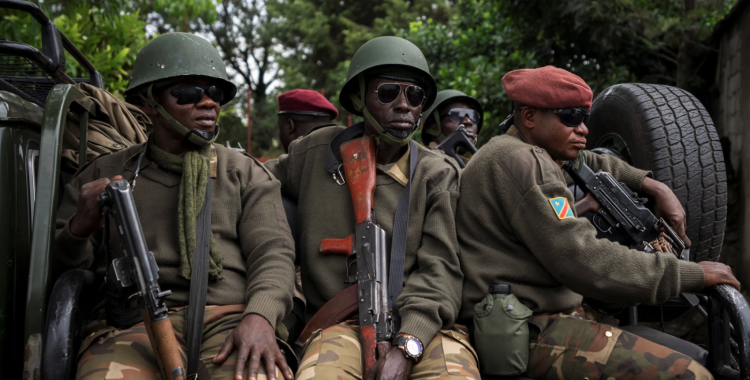João Lourenço, as Facilitator of the Normalization of Political-diplomatic Relations, Cooperation and Tensions between the DRC and Rwanda, states that "this irresponsible action seriously compromises efforts to pacify the conflict prevailing in the eastern region of the DRC and represents a flagrant and unacceptable violation of the ceasefire that has been in force since August 4, 2024."
In a statement to which VerAngola had access, the Government says it expresses its deep concern at the escalation of the conflict and the illegal conquest of territory in the Democratic Republic of Congo, also configuring the violation of the territorial integrity and sovereignty of the DRC, as stipulated in the Constitutive Act of the African Union and the Charter of the United Nations.
On Monday, the European Union (EU) also strongly condemned the occupation of Masisi village and its surroundings by the M23.
European diplomacy considered that the "constant advances of the M23 constitute a flagrant violation of the ceasefire" agreed within the scope of the Luanda process, and that they "considerably compromise the efforts made towards a peaceful resolution of the conflict" in eastern DRCongo.
Since November 2021, M23, an armed group supported by Kigali and its army, has taken possession of vast swaths of territory in eastern DRCongo. The capital of North Kivu province, Goma, with more than a million inhabitants and almost a million displaced people crowded into camps, is surrounded by rebels and Rwandan army units.
At the end of October, DRCongo and Rwanda approved a document that establishes, on paper, the terms of the departure of Rwandan soldiers and the neutralization by the Congolese army of the Democratic Forces for the Liberation of Rwanda (FDLR).
This armed group, formed by former high-ranking Hutu officials from the genocide of Tutsis and moderate Hutus in Rwanda in 1994, later refugees in DRCongo, constitutes, in the eyes of Kigali, a permanent threat.
Since 2020, Angola has hosted several summits to achieve peace in the region, within the scope of regional efforts promoted by the organizations in which it is part, such as the International Conference on the Great Lakes Region (CIRGL) and the African Union (AU), and intends to give new impetus to the negotiation rounds to end tensions between the two countries.
João Lourenço, as mediator appointed by the AU, has been trying to reach a ceasefire, calling for dialogue between the parties involved and promoting initiatives to stabilize the Great Lakes region, including the Luanda Process.
Since 1998, eastern DRCongo has been plunged into a conflict fueled by more than a hundred rebel groups and the army, despite the presence of the UN mission in the country (Monusco).







